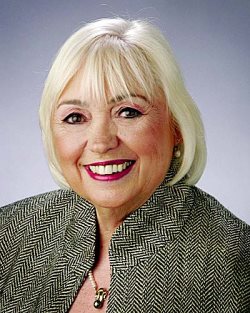 | | | Linda Fodrini-Johnson, MA, MFT, CMC is a Licensed Family Therapist and Certified Care Manager. She has been practicing professional care management (now called aging life care) since 1984. Linda founded Eldercare Services, a full-service care management and home care company in 1989, which now employs over 200 caring people. Eldercare Services has been providing Bay Area families with care management, home care services (caregiving), advocacy, counseling, support groups and education for 28 years. | | | | | | If you're feeling guilty about placing a family member in a care facility, you are in the "normal" range of the family caregiver trajectory. And in defense of the word "normal," there is none. We all proceed through events differently.
 In my many years of working with family caregivers and my own emotional journey moving my mom to assisted living, I felt the very real feeling of guilt that is sadly experienced by most of us.
In my many years of working with family caregivers and my own emotional journey moving my mom to assisted living, I felt the very real feeling of guilt that is sadly experienced by most of us.
 Some time ago, I learned that there are two kinds of guilt. One is when we have done something with the intention to hurt another, or we have forgotten or ignored something, unintentionally putting ourselves, or others in harm's way. This type of guilt usually needs some form of forgiveness or repayment. I call this good guilt because we learn from it and if we do our homework in kind and loving ways, it can free us from old hurts and allow us to move on with our lives.
Some time ago, I learned that there are two kinds of guilt. One is when we have done something with the intention to hurt another, or we have forgotten or ignored something, unintentionally putting ourselves, or others in harm's way. This type of guilt usually needs some form of forgiveness or repayment. I call this good guilt because we learn from it and if we do our homework in kind and loving ways, it can free us from old hurts and allow us to move on with our lives.
 The other kind is "bad" guilt, and that is the kind of guilt that family members often experience after placing a loved one in a care setting, giving up the day-to-day care or finding a safe place for one who can no longer care for themselves. It is bad because this is not something you would choose if things were different. The true feelings should be falling into sadness, grief or maybe even some anger at "why us" at this time in our lives.
The other kind is "bad" guilt, and that is the kind of guilt that family members often experience after placing a loved one in a care setting, giving up the day-to-day care or finding a safe place for one who can no longer care for themselves. It is bad because this is not something you would choose if things were different. The true feelings should be falling into sadness, grief or maybe even some anger at "why us" at this time in our lives.
 The reason this is considered bad guilt is that you did nothing to cause it. You did not inflict the dementia, the stroke or any other chronic illness. Even if you found yourself to be lacking in physical or emotional strength, and that is why you chose this time to make a move, it truly is about the other needing more care than you can deliver. Not because you are weak or unloving, but because the other person's needs are greater than your energy or emotional reserves. Remember in care settings the individuals employed work only eight hours, not 24.
The reason this is considered bad guilt is that you did nothing to cause it. You did not inflict the dementia, the stroke or any other chronic illness. Even if you found yourself to be lacking in physical or emotional strength, and that is why you chose this time to make a move, it truly is about the other needing more care than you can deliver. Not because you are weak or unloving, but because the other person's needs are greater than your energy or emotional reserves. Remember in care settings the individuals employed work only eight hours, not 24.
 Monthly Affirmation: "Love is doing what is needed, not what is necessarily wanted."
Monthly Affirmation: "Love is doing what is needed, not what is necessarily wanted."

|
